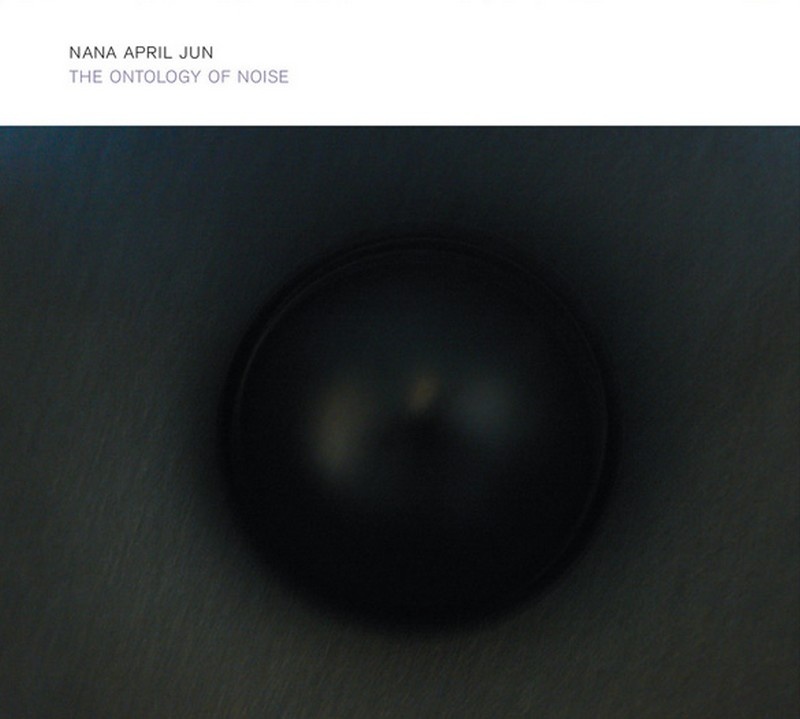Heb deze een tijdje terug gerecenseerd voor MusiqueMachine:
Oh! digital noise artists! How often have you been the subject of ridicule, of loathing, of hate, of threatening mails and dog doo on your doorstep? Laptop musicians, do you not bear this burden? And do you deserve it? Well.
The digitalization of society is ever plowing forth, to the pleasure of many and to the grief of, well, probably just as many others. Some marvel at free porn and films and music and get off on yet another net label, while others are disgruntled over pirates, pirates, pirates and those musicians whose music only exists in some digital realm. I have no intention of choosing sides, let alone settling the matter once and for all, but a little consensus - that would be nice.
The idea that the use of a computer inherently cheapens the product seems a remnant of the pre-digital age, and while that needn't justify the use of a computer by default, neither does it mean that computers cannot have an added value and elevate a work. While there is arguably less quality control nowadays (since putting together a release can be a virtually costless venture), the expanded set-up of the contemporary artist can work wonders; laptop Wunderkids can produce their wondrous masterpieces - and they can be heard.
On The Ontology of Noise, Swedish visual artist and sound artist Christofer Lämgren has put his faith in digital means, producing a record which - if I may believe the press release - is entirely void of analog means and traditional instrumentation. Moreover, it is to serve a higher purpose, as The Ontology of Noise (as per its title) is not so much an album as an exploration of the dynamics, textures, timbres of, simply, noise. To that end, Lämgren has stripped the album of traditional (musical) elements, abandoning composition and arrangement for the simplicity of a juxtaposition of sounds, which fade in and out and flow forth endlessly.
Almost miraculously, the fairly static and rigid approach occasionally yields almost beautiful results. At its best moments, the album is highly evocative, and its soundscapes conjure up things beyond sound alone; landscapes, seascapes, what-not-scapes: the sounds are highly visual in character, and are occasionally strikingly reminiscent of natural sounds - the sweeping streams of white noise rush by like gusts of winds; soft clicks and glitches are mistaken for distant footsteps. The sound palette is diverse, rich, ranging from barely audible hums to loud atonal fuzz and everything in between, from so reminiscent of nature to so clearly digitally processed - to even ambiguous, intangible.
However, The Ontology of Noise is not without flaws. My main gripe with the album is that it, in its attempt to remove all interference from the sound essential, sometimes becomes a venture all too impersonal; the virtual absence of conscious arrangement and layering, combined with the inherently simplistic character of the textures, makes it an exercise in sound that is almost futile. And while it can be evocative, it never becomes personal; it calls up images, but they are, too, like the sound, static, appearing before you as ridden of any distinct characteristic, of any humanity. Therein lies the main weakness of the record: while it is certainly hallucinatory, the effects wear off quick, and it fails to truly get under your skin. Instead, it briefly drowns you in a sea of gray, drags you along a monochrome landscape, and something irks you, and it is the artificiality, and suddenly you find yourself pondering the pros and cons of laptop artists once again.
Remember this Windows screensaver, back when you still needed screensavers, that was basically a 3D labyrinth, kind of like the Wolfenstein game, except you couldn't do anything as it ran by itself, and there were no guns and Nazis, and it never ended? The Ontology of Noise inevitably reminds me of this. It explores and explores, moves on at a steady pace forever and ever, and it seems promising, and exciting, and thrilling, and you can't wait to see what's around that corner, and the next, but eventually you realize that there are not going to be any Nazis and that you won't be able to blow anyone's brains out, and what's on offer is, eventually, all too much the same. It's a sort of small existential realization of futility, but it is only small, and it exists only in its own realm, and you press any key and run c:wolfenstein.bat and before the realization even begins to sink in, it's gone, too slight to leave an impression that lasts. The Ontology of Noise is like that, and though its intention is there, and it is clear and, at a level, admirable, it does not impress beyond its 36:39, and that is sad. Slightly sad.
Run c:incapacitants - necrosis.mp3


